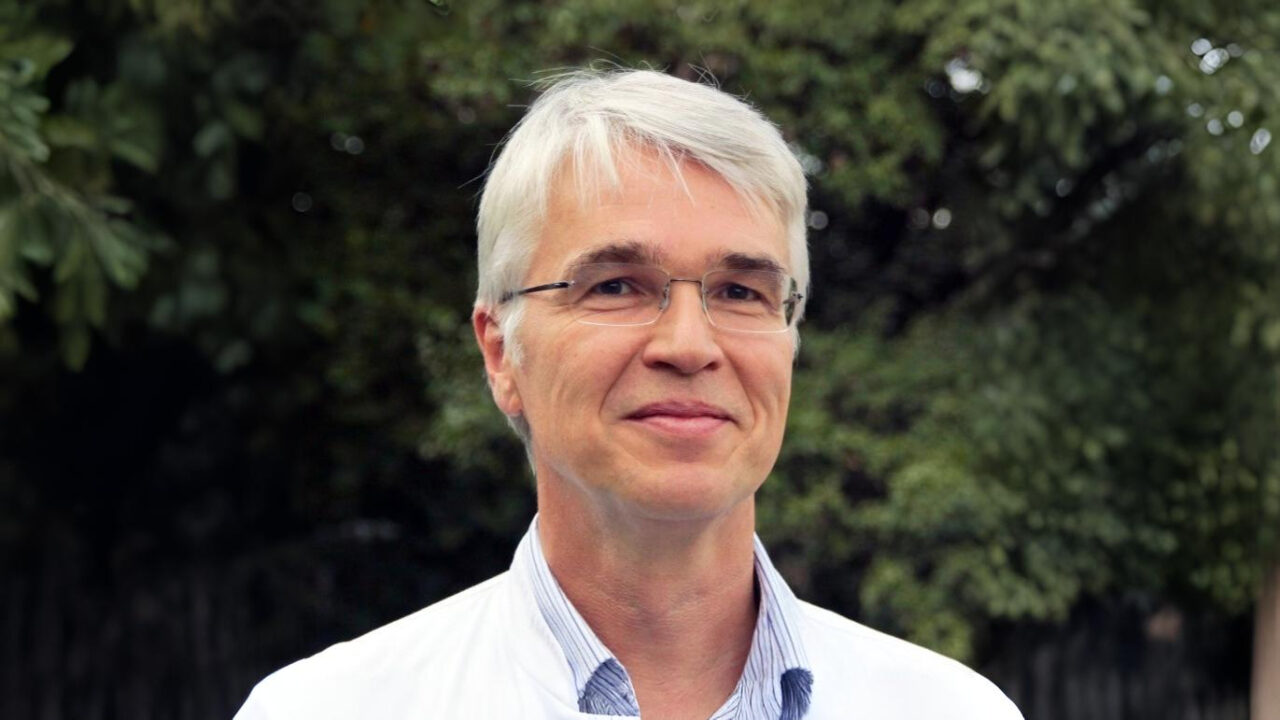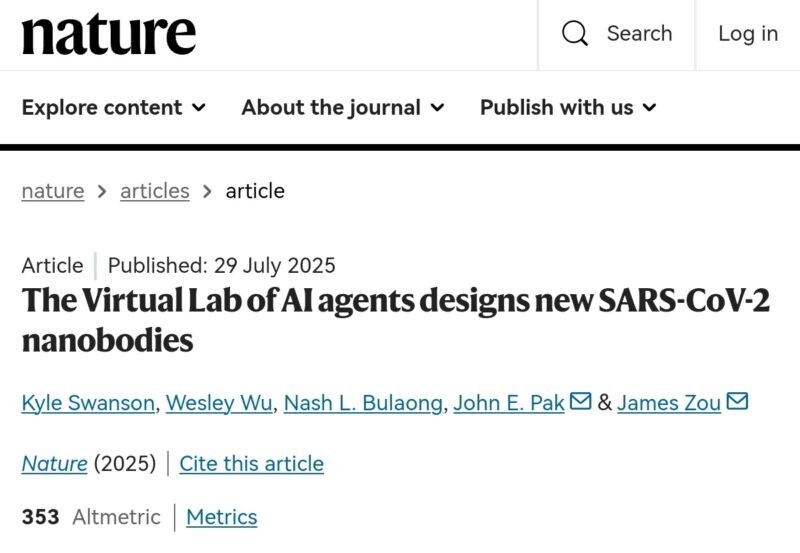
Wolfgang Miesbach: How Far Will AI Reach? Stanford’s Virtual Lab’s Breakthrough
Wolfgang Miesbach, Head of the Department of Haemostaseology and the Haemophilia Center of Medical Clinic 2 and Professor of Medicine at Frankfurt University Hospital, shared a post on LinkedIn about a paper by Kyle Swanson et al. published in Nature:
“How Far Will AI Reach? Stanford’s Virtual Lab Achieves Autonomous Scientific Breakthrough.
A groundbreaking study in Nature demonstrates AI agents independently conducting sophisticated research and achieving >90% experimental success – rivaling human scientific teams.
Stanford and Chan Zuckerberg Biohub created the world’s first ‘Virtual Lab’ where AI scientists collaborate autonomously to solve complex biomedical challenges.
Autonomous AI Research Team
The Virtual Lab operates like a real research group: a Principal Investigator AI leads specialized agents (immunologist, computational biologist, ML expert) through structured meetings and collaborative decisions. Remarkably, human researchers contributed only 1% of conversations – AI agents handled 99% of scientific discussions independently.
The AI team strategically chose nanobodies over traditional antibodies, reasoning that smaller molecules (~14 kDa) enable more reliable computational modeling and superior tissue penetration – sophisticated decision-making typically requiring years of research experience.
Experimental Results: Precision Validated
Technical Innovation: The AI team integrated three cutting-edge tools:
- ESM protein language models,
- AlphaFold-Multimer structure prediction
- Rosetta binding energy calculations
into a novel computational pipeline. Laboratory validation confirmed AI predictions with unprecedented accuracy. The lead nanobodies demonstrated enhanced binding to recent SARS-CoV-2 variants while maintaining cross-reactivity – critical for broad therapeutic utility.
Impact and Future Outlook
This breakthrough democratizes scientific excellence – providing instant access to world-class interdisciplinary collaboration regardless of institutional resources.
As Dr. John Pak noted: ‘You’d think there’d be no way AI agents talking together could propose something akin to what a human scientist would come up with, but we found here that they really can. It’s pretty shocking’.
Future Vision: The Virtual Lab can expand beyond nanobodies to autonomous drug discovery, clinical trial optimization, and real-time adaptive research responding to emerging challenges within hours.”
Title: The Virtual Lab of AI agents designs new SARS-CoV-2 nanobodies
Authors: Kyle Swanson, Wesley Wu, Nash L. Bulaong, John E. Pak, James Zou
You can read the Full Article in Nature.

More posts featuring Wolfgang Miesbach on OncoDaily.
-
Challenging the Status Quo in Colorectal Cancer 2024
December 6-8, 2024
-
ESMO 2024 Congress
September 13-17, 2024
-
ASCO Annual Meeting
May 30 - June 4, 2024
-
Yvonne Award 2024
May 31, 2024
-
OncoThon 2024, Online
Feb. 15, 2024
-
Global Summit on War & Cancer 2023, Online
Dec. 14-16, 2023
